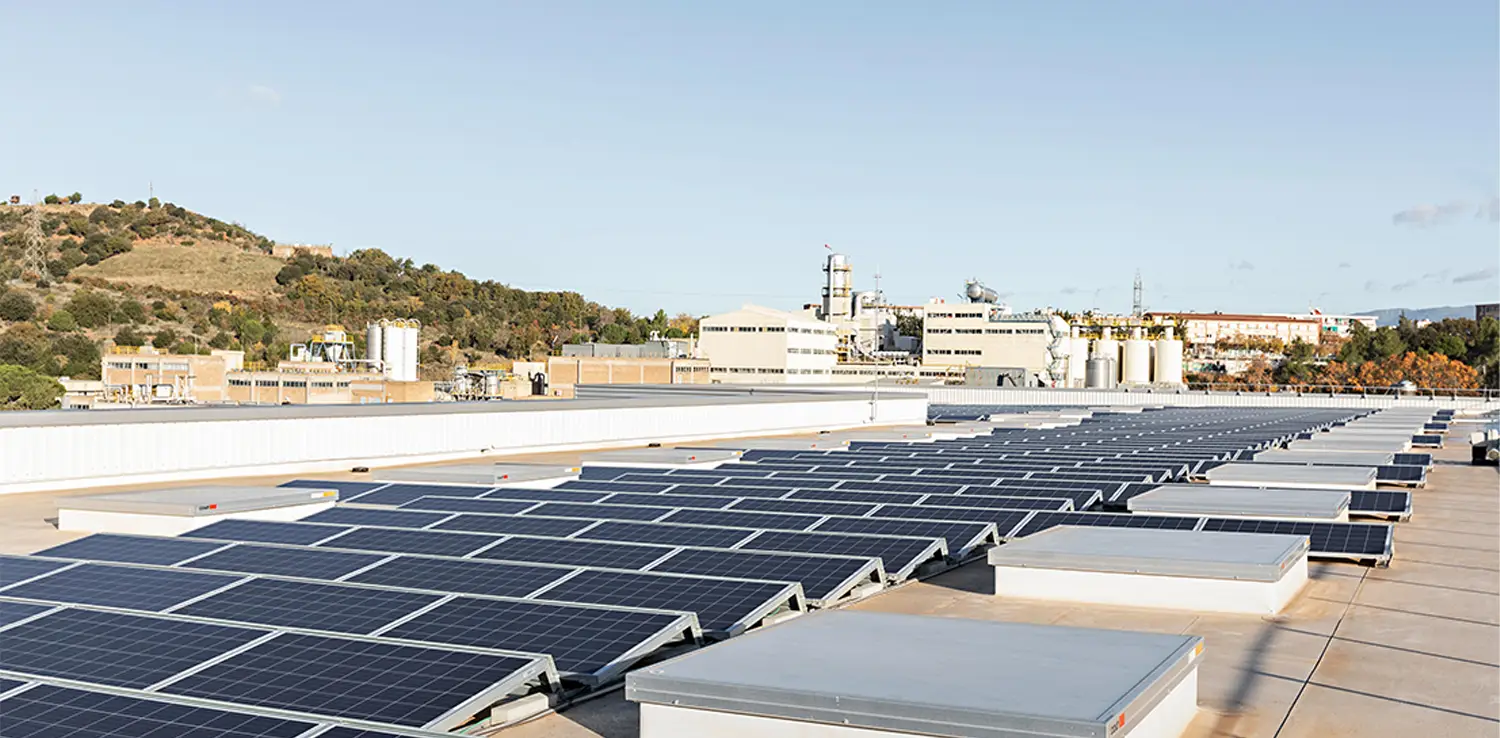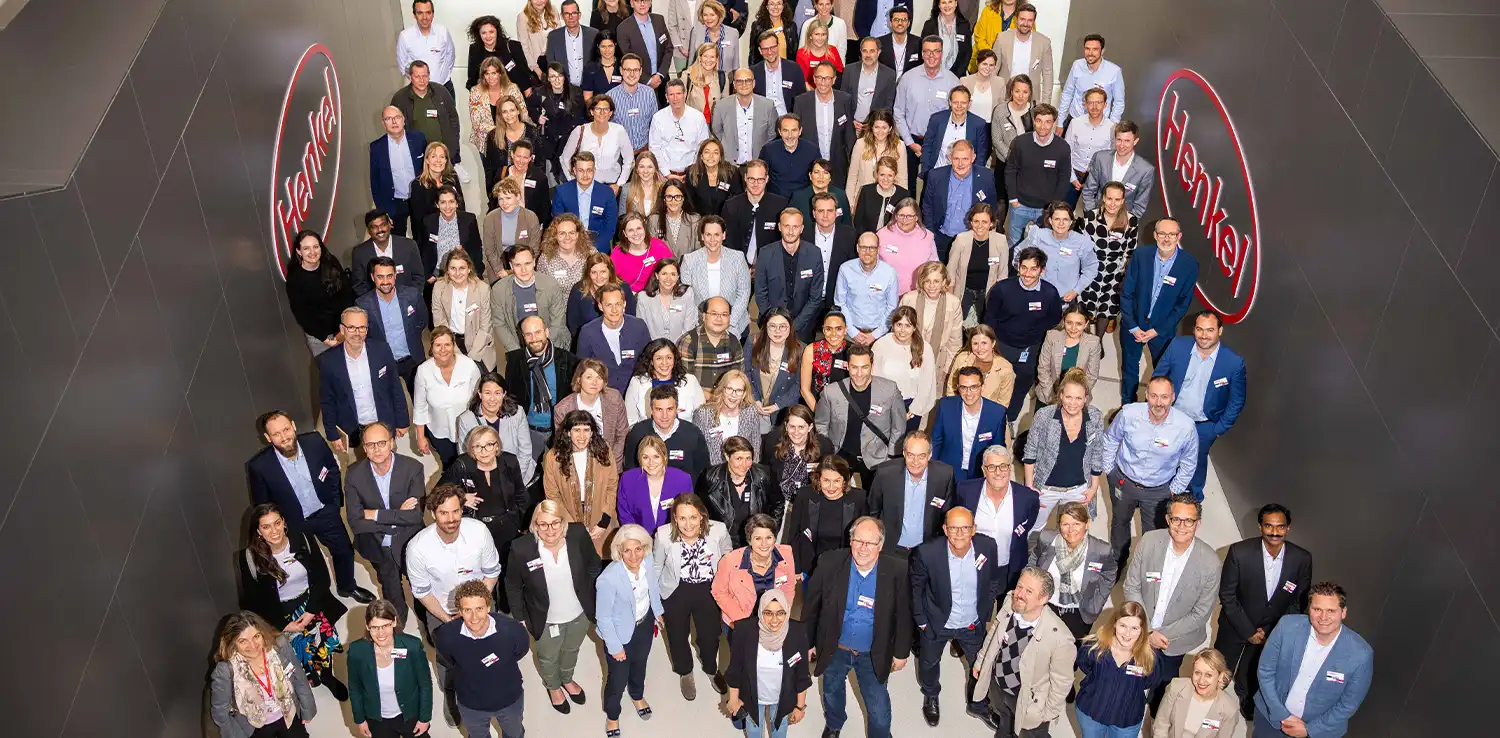An Interview with Ulrike Sapiro, Chief Sustainability Officer at Henkel

Since 2021, Ulrike Sapiro has been Chief Sustainability Officer at Henkel, driving the company’s global sustainability strategy. Source: Henkel
Can you tell us about your organization and your current role?
Henkel is an international company with almost 50,000 employees, working in around 60 countries. We operate both in consumer goods and industrial markets. The Adhesive Technologies business unit is a global leader in markets for adhesives, sealants, and functional coatings. And with Consumer Brands, Henkel holds leading positions especially in hair care and laundry & home care in many markets.
Sustainability has a long tradition at Henkel as a family company and we consider it part of our legacy. It has been a central element to our culture and strategy in the nearly 150-year history of the company. Since 2021, I have the pleasure and honor to drive this forward as Chief Sustainability Officer. I lead an experienced team of experts. We are responsible for the global sustainability strategy, policy, governance, sustainability reporting, and partnerships. It is an incredibly exciting, challenging, and fulfilling role.
What are your corporate sustainability commitments and goals?
Our sustainability commitments are guided by our 2030+ Sustainability Ambition Framework which sets our long-term agenda in three dimensions: regenerative planet, thriving communities and trusted partner. Each dimension covers concrete measures and projects that are backed with tangible goals.
For instance, by 2025 we strive to have 100% of our packaging to be designed for recycling or reuse to further drive circularity. Another example is our ambition for climate action. By 2030, we want to achieve a climate-positive footprint for our production sites and to reduce Scope 3 emissions by 30%. These are just two concrete examples of how we are driving change by acting sustainably for the benefit of current and future generations. To me, this also includes the social aspects. We are seeing global poverty and inequalities increase and acknowledge that companies like Henkel must and should play a role in meeting these challenges.

Source: Henkel
What have been your most difficult challenges in achieving those goals?
Sustainability is a highly complex matter, it’s highly dynamic – and what is sustainable is not as clear as black or white. This means that we constantly have to make trade-offs.
Take the issue of plastic, a topic that concerns many people and polarizes consumers. On the one hand, there are understandable calls to use less plastic or avoid it altogether. On the other hand, plastic is actually the packaging material with the lowest carbon footprint – if we manage to close the loop and increase circularity. This requires the engagement of the entire value chain.
As a rule, there is hardly ever one single solution or one best way. We have to weigh up solutions, involve partners, make compromises, and work to convince people – because we need to engage all of these actors along the journey. But it helps that we are all true believers in our strategy and in our cause. You have to be passionate about it!
What opportunities do you see to address those challenges?
It is often the case in life: within challenges lie opportunities. I absolutely believe that sustainability is not just about securing the so-called ‘license to operate’ but also about business opportunities. If we drive the solutions to the challenges through our business, we can really make an impact and be a successful company.
Our customers are looking for more low carbon and circular solutions and our greatest lever lies in our products and technological solutions. Our consumer products are used by millions around the globe. This means that by optimizing, for instance, an ingredient for detergent, the global effect can be substantial and a massive enabler for individuals using our products. In the industrial sector, our collaboration spans approximately 800 industries, where we enhance sustainability profiles – making cars lighter, machines more durable, or packaging recyclable. Henkel’s distinctive combination of consumer and B2B operations empowers us to propel sustainability on multiple fronts.
What are the ESG material (environmental, social, and governance) issues that your organization focuses on, and how do you integrate them into your corporate sustainability?
With our 2030+ Sustainability Ambition Framework, which we published in 2022, we have clearly addressed the three dimensions of ESG in our vision of sustainability. It is reflected in our focus areas: ‘regenerative planet,’ encompassing topics such as circular economy and climate protection; ‘thriving communities,’ meaning active contributions to education, equity, and wellbeing; and we act as a ‘trusted partner’ through sustainable performance, transparency, and collaboration with our value chain.
How do you communicate your corporate sustainability strategy and initiatives to internal and external stakeholders?
Allow me to focus on internal communication in my answer, as this aspect is often underestimated. If we claim that sustainable business is firmly embedded in our organization, it comes with a clear understanding that each department – indeed, almost every individual – is responsible to help bring this to life. This requires a culture and mindset that’s ready to embrace change and a common understanding of how environmental and social topics connect to each other.
To achieve this, we use a mix of top-down and bottom-up approach. Top-down by integrating ESG criteria into our business decision-making processes and management remuneration. Our Sustainability Council is the central decision-making body and combines top leaders from literally all areas of our business. And bottom-up by empowering and upskilling our colleagues, through trainings and engagement formats, for example our Sustainability Pioneer training program or the Sustainability Incubator Lab, an eight-week learning opportunity that connects people across teams to work on projects together. Now imagine for a second how all of our 50,000 employees can spread this knowledge into their own networks – that’s quite an impact we can make here.

Source: Henkel
What were the most exciting initiatives and progress that you and your team have done in 2023?
As a company, we have achieved significant milestones in sustainability, such as converting more than ten more production facilities to climate-neutral production. We also made another huge lift in advancing recyclability and recycled content in our packaging. More often, the real exciting things happen behind the scenes, like in our nature and social agenda.
On that note, a personal highlight for me this year was our Global Sustainability Forum where colleagues from all corners of the business and from around the world spent two intense days together, deepening collaboration, picking up new skills and learning from one another. Collaboration and knowledge-sharing are more important than ever. We’re eager to share our own experiences, as we collectively drive change towards a more sustainable and vibrant future as one company.
What lessons have you learned from your sustainability efforts in 2023?
What I take away from this year is not so much a lesson but rather something that I consistently remind my colleagues of, as well as myself: With all the challenges that lie ahead, it is important not to get overwhelmed by the enormity of the task. Driving sustainability is not about achieving grandiose goals overnight. It’s about taking relevant steps every day and being consistent, deliberate, and intentional. It’s about being mindful of your choices and expectations. And it’s about relentless collaboration and engagement with others to gain more perspectives, influence change, and make better decisions.
What are your plans for your sustainability efforts in 2024?
It would be wrong to single out one priority, as we will continue to work hard in all focus areas to make progress and achieve our ambitious goals. We are very focused on advancing our climate and circularity agenda. For that, we will collaborate even more closely with our business units and the different functions at Henkel, such as Purchasing, also to activate our suppliers further on the agenda. And of course, as many European companies, we have to get ready for our new corporate sustainability reporting obligations. At the same time, we want to continue driving a culture of sustainability transformation among the whole company – by offering a variety of channels and programs to foster exchange, idea sharing, and openness to upskilling. Because sustainability is a learning journey for all of us.
If you were to share advice you learned in your role that may be helpful to your peers and sustainability practitioners around the world, what would that be?
You can’t do it alone. A network of internal and external collaborators is essential, along with an open mind that allows you to continuously learn more about the progress that can be made. And of course, sustainability is a marathon and not a sprint, so persistence and resilience are key. So, look after yourself and keep your energy.


 Women in Waste Management: Asia’s Circularity Runs on Women. Its Policies Still Don’t
Women in Waste Management: Asia’s Circularity Runs on Women. Its Policies Still Don’t  Embracing the Business Value of Sustainability
Embracing the Business Value of Sustainability  American Farmers Call for Government Support Amidst PFAS Contamination
American Farmers Call for Government Support Amidst PFAS Contamination  Asia Pacific’s SDG Progress Faces Major Setbacks
Asia Pacific’s SDG Progress Faces Major Setbacks  Exploring the Bidirectional Relationship Between Olympic Games and the Environment
Exploring the Bidirectional Relationship Between Olympic Games and the Environment  The Hidden Threat of Tire Pollution to Salmon Populations
The Hidden Threat of Tire Pollution to Salmon Populations